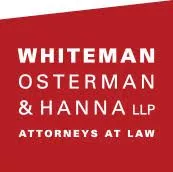- within Real Estate and Construction topic(s)
- with readers working within the Transport industries
For entrepreneurs, investors, and small business owners, the dream of a successful exit often includes maximizing the financial returns. A powerful, yet often underutilized, tool in achieving this has been the Qualified Small Business Stock (QSBS) gain exclusion under Section 1202. This provision has historically allowed noncorporate taxpayers to exclude a significant portion, or even all, of the gain realized from the sale of QSBS held for more than five years. Now, with recent legislative changes, the landscape for QSBS is expanding, offering even greater opportunities for strategic growth and lucrative exits.
The recent "One Big Beautiful Bill Act" (OBBBA) brings significant and beneficial changes to the QSBS gain exclusion, making it even more attractive for those looking to invest in and build qualifying small businesses.
QSBS: A Quick Recap
Under pre-OBBBA law, if you, as a noncorporate taxpayer, held QSBS for over five years, you could potentially exclude a substantial portion of the gain on its sale. However, certain limitations applied:
- Gain Exclusion Limit: The aggregate excluded gain from a single corporation's stock could not exceed the greater of (i) $10 million (or $5 million for married individuals filing separately) minus previously excluded eligible gain, or (ii) ten times the taxpayer's aggregate adjusted basis in the QSBS sold during the tax year.
- Gross Asset Limit: The issuing corporation's aggregate gross assets (including cash and adjusted basis of assets) generally could not have exceeded $50 million at any point before and immediately after the stock issuance, and at all times on or after the Revenue Reconciliation Act of 1993.
The OBBBA Expansion
The OBBBA introduces critical amendments that significantly enhance the QSBS gain exclusion, making it an even more potent tool for wealth creation. These changes primarily revolve around an expanded gain exclusion percentage, increased aggregate gain limitations, and a higher gross asset threshold for qualifying corporations.
1. Enhanced Gain Exclusion Percentage:
Perhaps the most immediately impactful change is the revised gain exclusion schedule for QSBS acquired after July 4, 2025 (the "applicable date"). The OBBBA eliminates a tiered exclusion system based on holding period:
- 50% Exclusion: For stock held for 3 years.
- 75% Exclusion: For stock held for 4 years.
- 100% Exclusion: For stock held for 5 years.
This means that for QSBS acquired after July 4, 2025, still receives the 100% exclusion if held for 5 years, but also provides for interim benefits for shorter holding periods. This represents a substantial improvement over previous limitations on the exclusion percentage. This could significantly benefit newer investors that may not be otherwise qualify if an exit event occurs less than 5 years after such investment.
2. Increased Aggregate Gain Exclusion Limit:
The OBBBA significantly boosts the aggregate amount of gain that can be excluded, particularly for stock acquired after the applicable date. The new "applicable dollar limit" is:
- For stock acquired before the applicable date: $10 million minus previously excluded eligible gain from the same corporation's stock. This maintains the pre-OBBBA limit for existing holdings.
- For stock acquired after the applicable date: $15 million minus previously excluded eligible gain from the same corporation's stock (regardless of when that stock was acquired). This new, higher limit directly encourages new investment in qualifying small businesses.
Furthermore, this $15 million limit will be adjusted for inflation. If eligible gain from stock acquired after the applicable date exceeds the new limit in a given tax year, the applicable dollar limit for any later tax year will be reset to zero, emphasizing the importance of careful planning.
3. Higher Gross Asset Limit for Issuing Corporations:
Recognizing the growth of successful small businesses, the OBBBA also increases the aggregate gross asset limit for the issuing corporation from $50 million to $75 million. This expansion means that a wider range of companies will now qualify as QSBS issuers, potentially opening up more investment opportunities. Similar to the gain exclusion limit, this $75 million limit will also be subject to inflation adjustments.
What This Means for Businesses and Investors
These significant amendments to Section 1202 present a powerful opportunity for individuals and businesses alike. For entrepreneurs, it makes your business a more attractive investment proposition, potentially increasing access to capital. For investors, it offers an enhanced tax-efficient exit strategy, maximizing your returns on successful ventures.
However, navigating the intricacies of QSBS eligibility and maximizing the benefits requires careful planning and expert guidance. The rules are complex, with specific requirements for both the stock and the issuing corporation.
At WOH, our experienced tax attorneys are well-versed in the nuances of QSBS and the implications of these new legislative changes. We can assist you with:
- Determining QSBS Eligibility: Ensuring your existing or prospective investments meet all the stringent requirements.
- Strategic Planning: Advising on the optimal timing for stock acquisitions and dispositions to maximize gain exclusion.
- Compliance: Guiding you through the necessary documentation and reporting to claim the exclusion successfully.
- Business Structuring: Helping businesses structure their operations to qualify their stock as QSBS for future investors.
The expansion of the QSBS gain exclusion is a significant development that should not be overlooked. Whether you are an entrepreneur looking to attract investment or an investor seeking to optimize your returns, understanding and leveraging these new provisions can have a profound impact on your financial success.
The content of this article is intended to provide a general guide to the subject matter. Specialist advice should be sought about your specific circumstances.


